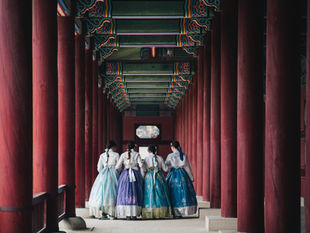What is Nunchi?

"Nunchi" (눈치) is a uniquely Korean word that refers to the subtle art of sensing what others are thinking and feeling, often described as "reading the room." It goes beyond basic observation or social awareness; nunchi is about picking up on nonverbal cues, understanding the unspoken context, and intuitively knowing how to respond in a way that maintains harmony and respect in a group.
Opening the Door:
The Early Steps to Life in Korea
Community Stories
"Sarah's experiences have been invaluable in shaping my teaching methods."
Sarah Kim, Educator
"The tips provided by David have significantly improved my learning outcomes."
David Lee, Student
"Jenny's resources helped me navigate the Korean language with ease."
Jenny Park, Lifelong Learner
FAQs
Frequently Asked Questions
Do I need teaching experience or a degree in education to teach English in Korea?
A: Most schools require you to have at least a bachelor's degree in any field, but not necessarily in education. While prior teaching experience is a plus, many schools provide training for new teachers. However, having a TEFL/TESOL certification can make you more competitive and confident in the classroom.
How important is it to learn Korean before coming to teach?
A: You don't need to be fluent in Korean to teach English in Korea, as classes are usually conducted in English. However, learning some basic Korean will make daily life easier and help you build better relationships with students and colleagues. Many teachers find that picking up the language naturally over time enhances their experience.
What is a typical work week like for an English teacher in Korea?
A: Most teachers work 30-40 hours per week, with teaching hours varying depending on whether you work at a public school or a private academy (hagwon). Prep time, meetings, and occasional events may be part of your schedule. Hagwons often have afternoon and evening hours, while public schools usually follow a standard daytime schedule.
Have a question about teaching or living in South Korea? Find the answers to common queries below.
Blog Categories
Explore a wide range of topics from Korean culture and language to teaching strategies.
Membership Benefits
Unlock Premium Features
Technical Support
Get help with any technical issues or inquiries related to our platform.
Connect with Us
Reach Out Today
Feel free to connect with us for any inquiries, collaborations, or to share your experiences of teaching and living in South Korea.

![[Artistly Design]-019a766e-1434-70a8-963e-98a85f60590c.png](https://static.wixstatic.com/media/69776d_e7da2d37606e436f8b7517794bfbaa42~mv2.png/v1/fill/w_123,h_95,al_c,q_85,usm_0.66_1.00_0.01,blur_2,enc_avif,quality_auto/69776d_e7da2d37606e436f8b7517794bfbaa42~mv2.png)





